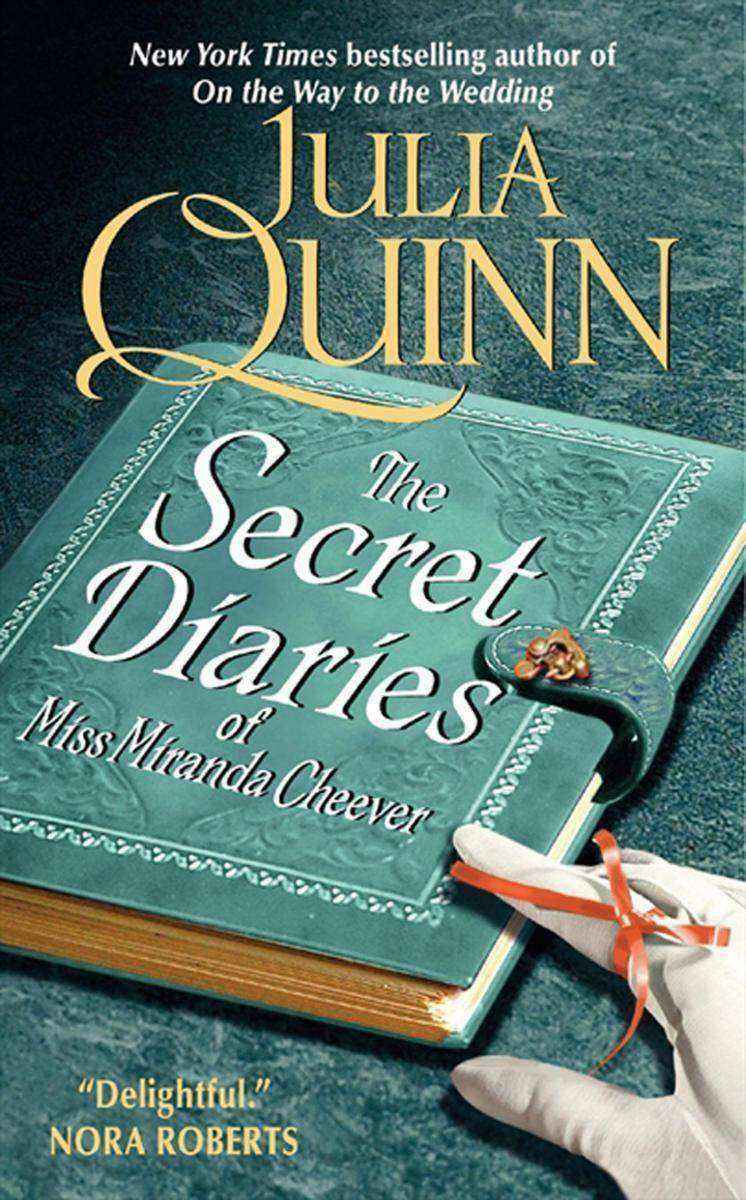
The Secret Diaries of Miss Miranda Cheever
¥55.31
2 March 1810 . . . Today, I fell in love. At the age of ten, Miranda Cheever showed no signs of Great Beauty. And even at ten, Miranda learned to accept the expectations society held for her until the afternoon when Nigel Bevelstoke, the handsome and dashing Viscount Turner, solemnly kissed her hand and promised her that one day she would grow into herself, that one day she would be as beautiful as she already was smart. And even at ten, Miranda knew she would love him forever. But the years that followed were as cruel to Turner as they were kind to Miranda. She is as intriguing as the viscount boldly predicted on that memorable day while he is a lonely, bitter man, crushed by a devastating loss. But Miranda has never forgotten the truth she set down on paper all those years earlier and she will not allow the love that is her destiny to slip lightly through her fingers . . .
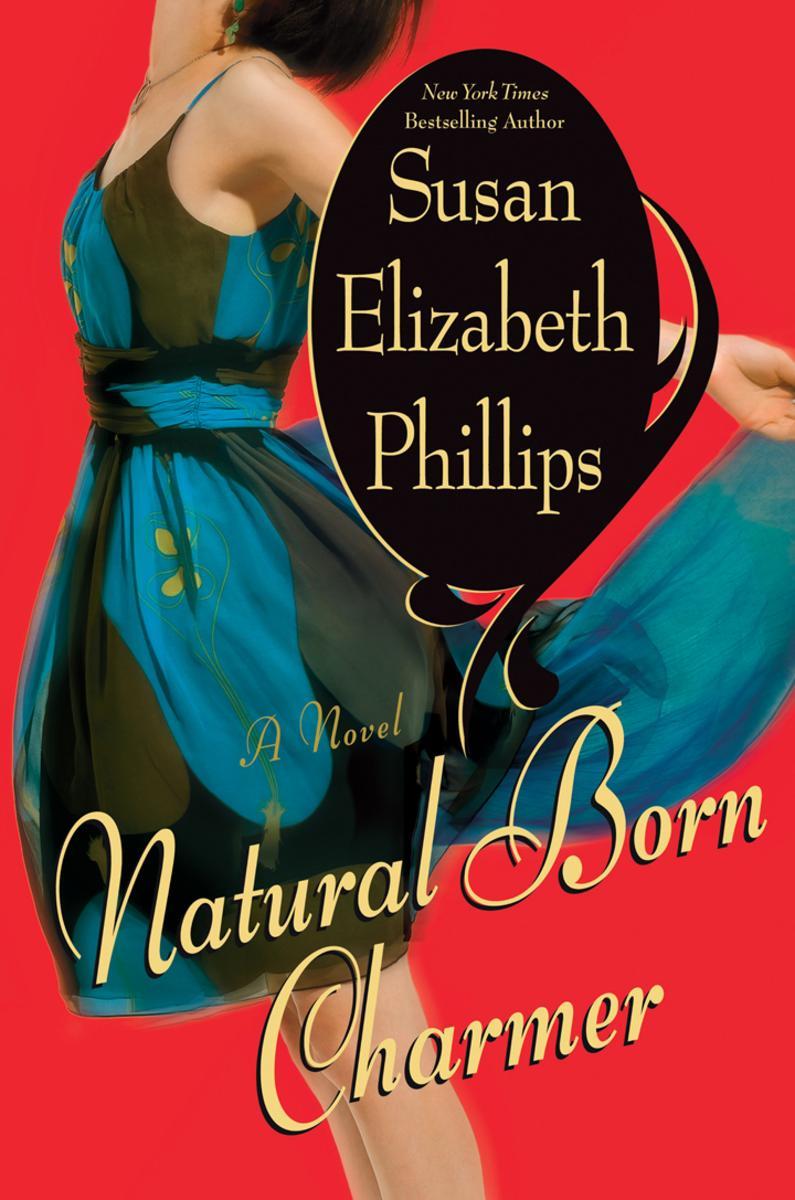
Natural Born Charmer
¥55.31
Chicago Stars quarterback Dean Robillard is the luckiest man in the world: a bona-fide sports superstar and the pride of the NFL with a profitable side career as a buff billboard model for End Zone underwear. But life in the glory lane has started to pale, and Dean has set off on a cross-country trip to figure out what's gone wrong. When he hits a lonely stretch of Colorado highway, he spies something that will shake up his gilded life in ways he can't imagine. A young woman . . . dressed in a beaver suit. Blue Bailey is on a mission to murder her ex. Or at least inflict serious damage. As for the beaver suit she's wearing . . . Is it her fault that life keeps throwing her curveballsWitness the expensive black sports car pulling up next to her on the highway and the Greek god stepping out of it. Blue's career as a portrait painter is the perfect job for someone who refuses to stay in one place for very long. She needs a ride, and America's most famous football player has an imposing set of wheels. Now, all she has to do is keep him entertained, off guard, and fully clothed before he figures out exactly how desperate she is. But Dean isn't the brainless jock she imagines, and Blue despite her petite stature is just about the toughest woman Dean has ever met. They're soon heading for his summer home where their already complicated lives and inconvenient attraction to each other will become entangled with a charismatic but aging rock star; a beautiful fifty-two-year-old woman trying to make peace with her rock and roll past; an eleven-year-old who desperately needs a family; and a bitter old woman who hates them all. As the summer progresses, the wandering portrait artist and the charming football star play a high-stakes game, fighting themselves and each other for a chance to have it all. Natural Born Charmer is for everyone who's ever thought about leaving their old life in the dust and never looking back. Susan Elizabeth Phillips takes us home again . . . and shows us where love truly lives.
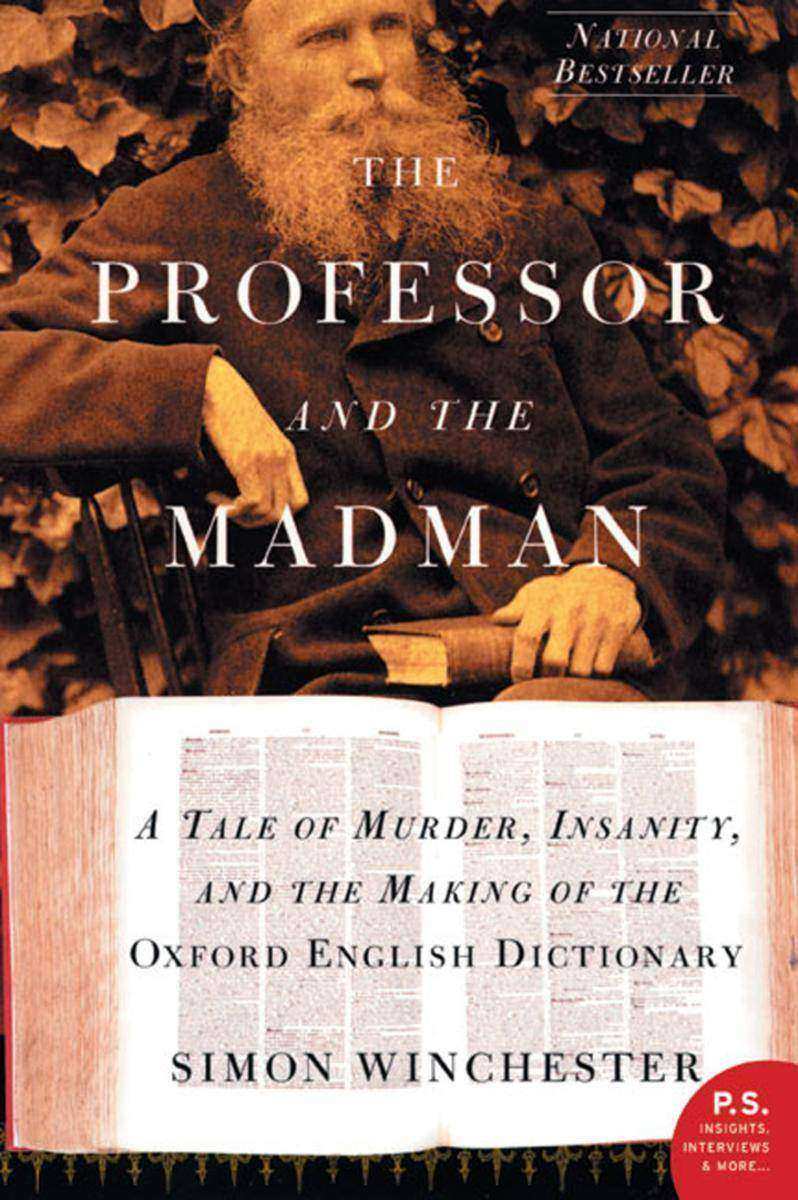
The Professor and the Madman
¥95.39
The Professor and the Madman , masterfully researched and eloquently written, is an extraordinary tale of madness, genius, and the incredible obsessions of two remarkable men that led to the making of the Oxford English Dictionary -- and literary history. The compilation of the OED , begun in 1857, was one of the most ambitious projects ever undertaken. As definitions were collected, the overseeing committee, led by Professor James Murray, discovered that one man, Dr. W. C. Minor, had submitted more than ten thousand. When the committee insisted on honoring him, a shocking truth came to light: Dr. Minor, an American Civil War veteran, was also an inmate at an asylum for the criminally insane.

Sketches Sartorial, Tonsorial and the Like
¥24.44
St Claire Bullock - a Professor of Philosophy, no less - in the intervals between pondering the great questions of life, turned his hand to penning light verse in the manner of Hilaire Belloc, Ogden Nash and Edward Lear. In rhyming couplets these wry and witty poems ponder the foibles and vanities of mortals. Some of these are captured in pen and ink drawings which caricature the subject of the poems. Each character is given an amusing name, beginning with Master Cecil Abercorn, through Clarence Castle, Serena Huff, The Marchioness of Mal de Mer, Major Houghton Reid and Thomas Tinkham Tattersall to Roland Washburn White. There are 70 poems in all of which 10 are illustrated. The illustration on the front cover relates to Rupert Ashe: 'The greatest pride of Rupert Ashe was his luxuriant moustache. He took great care to keep it groomed, And even, with restraint, perfumed. He brushed it upward every day, and it made such a grand display, that people who were not the wiser, imagined that he was the Kaiser.'
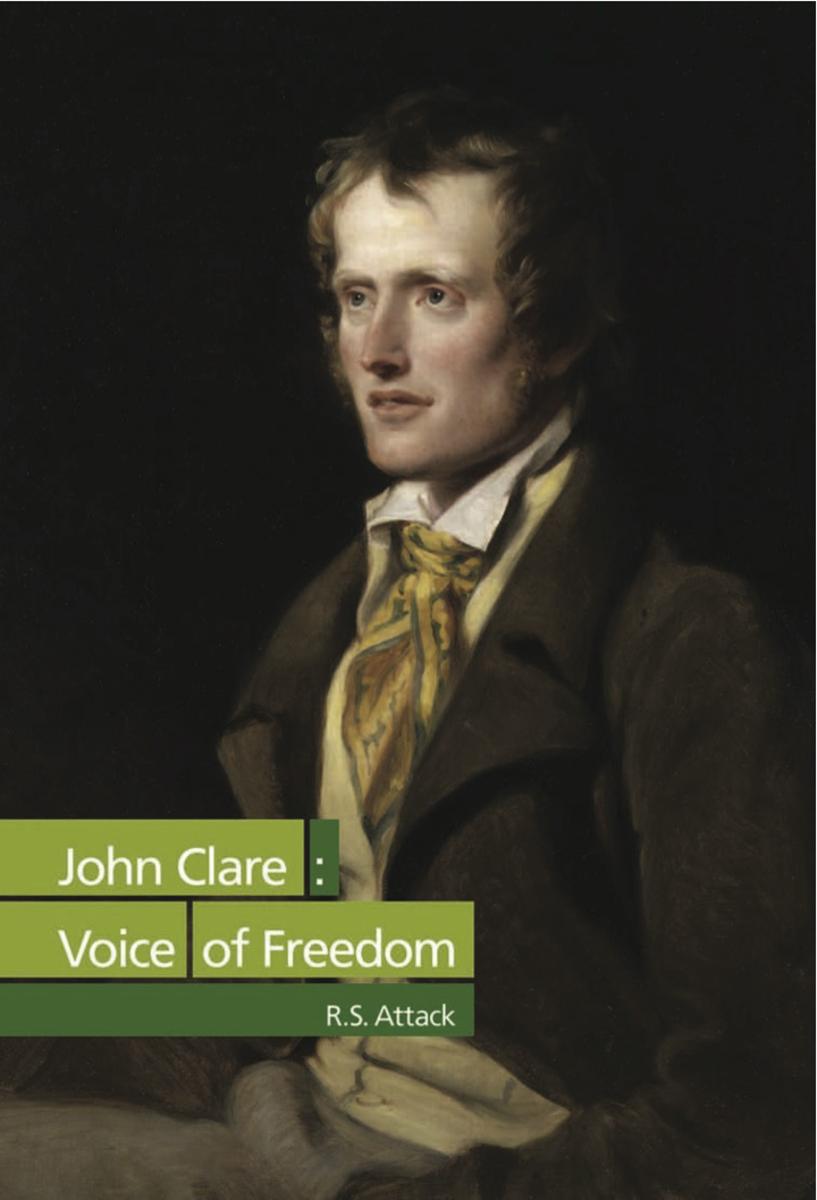
John Clare
¥24.44
John Clare (1793-1864) was born at a time of great social upheaval, just months after the beheading of Louis XVI and the outbreak of war with France which was to last till the defeat of Napoleon at Waterloo in 1815. He also lived through the upheavals of the land enclosure movement and agricultural revolution which changed the face of the countryside and the way of life in rural England. His father was a farm worker who managed to pay for his son’s schooling, though this was cut short as conditions worsened, but at least Clare had by then learnt to read and write so he could continue his own education, reading whatever books he could lay his hands on. At the age of sixteen he witnessed the social dislocation caused by the local enclosure Act and observed how the landscape was gradually transformed. Drawing on Clare’s writing, this extensively researched study gives the modern reader an appreciation of the divisive effects of these policies. Structured chronologically, this exploration of John Clare’s life highlights the socio-economic and environmental aspects of his observations and includes his reports on an insidious revolution taking place in the English countryside. Parliament, dominated by landowners, authorised the enclosure of large tracts of common land by private acts without considering the effect on those who had enjoyed rights of use and pasturage for centuries. Land enclosures, and the improved agricultural techniques which this permitted, was important in increasing food production at a time when the population of England was growing rapidly. While additional work was initially provided for agricultural labourers in the fencing and walling needed, this was temporary. The introduction of new, labour-saving machinery further reduced the opportunities for work. Insufficient attention, the author argues, has been given to the consequences. Those driven out of their homes in the country were left with no option but to migrate to the towns and sell their labour to whoever would pay for it. In effect, land enclosure created a market in land; landlessness created a market in labour. These are the foundations of our modern market economy. The author asserts that the harshness of the early years of the industrial revolution were the product of land enclosure which the welfare state has to some extent mitigated, although at the cost of creating a dependency culture in contrast to the sturdy independence of Clare’s parents’ generation of farm workers.

Dorothy Must Die: The Other Side of the Rainbow Collection
¥327.12
There's a new wicked witch in Oz—and her name is Dorothy. The Wonderful Wizard of Oz meets Kill Bill in this edgy, fast-paced, fantasy-adventure series from New York Times bestselling author Danielle Paige. The first two novels and three novellas are available together here for the first time:Dorothy Must Die: Oz has turned into a savage dystopia under Dorothy's rule—and now a new girl from Kansas must take her down. Amy Gunn been recruited by the Revolutionary Order of the Wicked. Her mission: Remove the Tin Woodman's heart. Steal the Scarecrow's brain. Take the Lion's courage. And—Dorothy must die.The Wicked Will Rise: With the Revolutionary Order of the Wicked scattered across Oz, Amy Gumm is on her own in the twisted fairyland. As she searches the kingdom in the hopes of destroying Dorothy once and for all, Amy realizes that nothing is what it seems in Oz and everyone has their own agenda.This collection also contains the three prequel novellas No Place Like Oz, The Witch Must Burn, and The Wizard Returns.
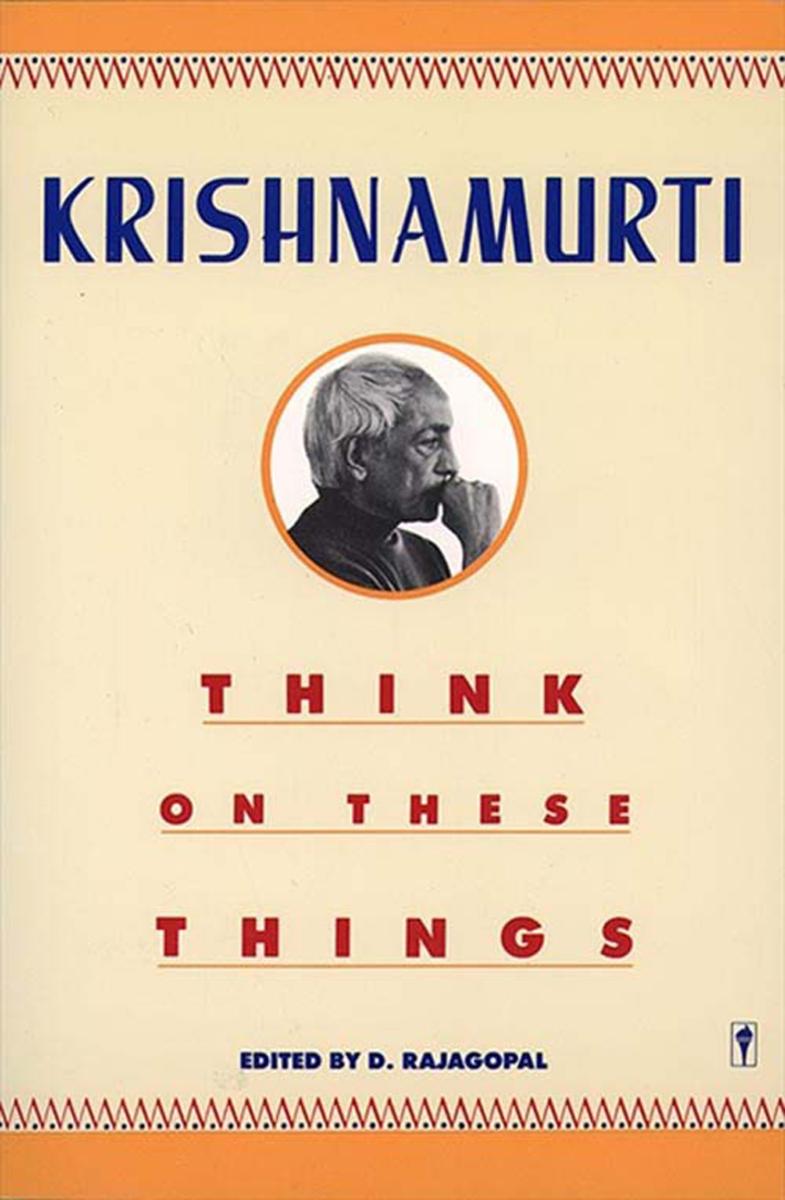
Think on These Things
¥94.10
The material contained in this volume was originally presented in the form of talks to students, teachers and parents in India, but its keen penetration and lucid simplicity will be deeply meaningful to thoughtful people everywhere, of all ages, and in every walk of life. Krishnamurti examines with characteristic objectivity and insight the expressions of what we are pleased to call our culture, our education, religion, politics and tradition; and he throws much light on such basic emotions as ambition, greed and envy, the desire for security and the lust for power all of which he shows to be deteriorating factors in human society.From the Editor NoteKrishnamurti observations and explorations of modern man estate are penetrating and profound, yet given with a disarming simplicity and directness. To listen to him or to read his thoughts is to face oneself and the world with an astonishing morning freshness.Anne Marrow Lindbergh

House, M.D. 豪斯医生官方指南
¥105.17
The authorized guide to the television phenomenon House, M.D. For the last six years House, M.D. has been one of the most popular and captivating shows on television. Following the stories of a misanthropic genius doctor named Gregory House and his team of specialists, each week the show confronts medical mysteries that have baffled the best minds in medicine. Centered around one of the most compelling characters on television brilliantly portrayed by actor Hugh Laurie the Emmy Award winning TV drama has been keeping millions of viewers intrigued and enthralled since it began, always offering an entertaining mixture of drama and humor. Based on unprecedented access to the show's cast members and creative staff, House, M.D. is the first fully authorized guide to the hit medical drama, offering a close-up view inside the world of House . From the show's genesis to today, this companion provides unique insight into the TV drama, as the actors, writers, and producers who've created these characters describe in their own words what the show means to them. This book also delves into fascinating discussions of the show's medical science and controversial ethical issues, as well as includes exclusive photographs from the set and an intimately detailed look at the making of an episode. Essential reading for any House fan, House, M.D. is the ultimate behind-the-scenes guide to TV's most captivating show.
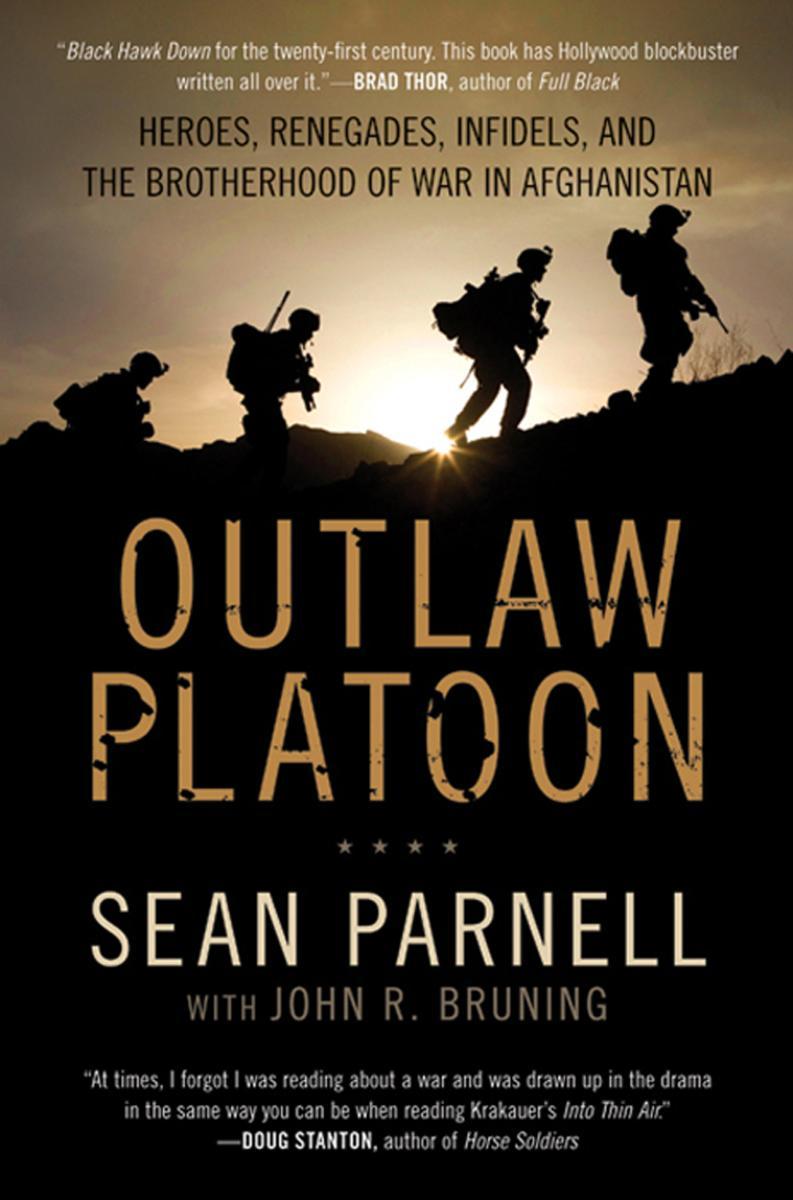
Outlaw Platoon
¥95.11
In combat, men measure up. Or don't. There are no second chances. In this vivid account of the U.S. Army's legendary 10th Mountain Division's heroic stand in the mountains of Afghanistan, Captain Sean Parnell shares an action-packed and highly emotional true story of triumph, tragedy, and the extraordinary bonds forged in battle. At twenty-four years of age, U.S. Army Ranger Sean Parnell was named commander of a forty-man elite infantry platoon a unit that came to be known as the Outlaws and was tasked with rooting out Pakistan-based insurgents from a mountain valley along Afghanistan's eastern frontier. Parnell and his men assumed they would be facing a ragtag bunch of civilians, but in May 2006 what started out as a routine patrol through the lower mountains of the Hindu Kush became a brutal ambush. Barely surviving the attack, Parnell's men now realized that they faced the most professional and seasoned force of light infantry the U.S. Army had encountered since the end of World War II. What followed was sixteen months of close combat, over the course of which the platoon became Parnell's family: from Staff Sergeant Greg Greeson, the wise, chain-smoking veteran who never lost his cool; to Specialist Robert Pinholt, a buttoned-down conservative with the heart of a warrior and the mind of an economist; to Staff Sergeant Phil Baldwin, the platoon's voice of calm and reason, a man who sacrificed everything following the events of 9/11 career, home, financial stability to serve his country. But the cost of battle was high for these men: Over 80 percent were wounded in action, putting their casualty rate among the highest since Gettysburg, and not all of them made it home. A searing and unforgettable story of friendship in battle, Outlaw Platoon brings to life the intensity and raw emotion of those sixteen months, showing how the fight reshaped the lives of Parnell and his men and how the love and faith they found in one another ultimately kept them alive.
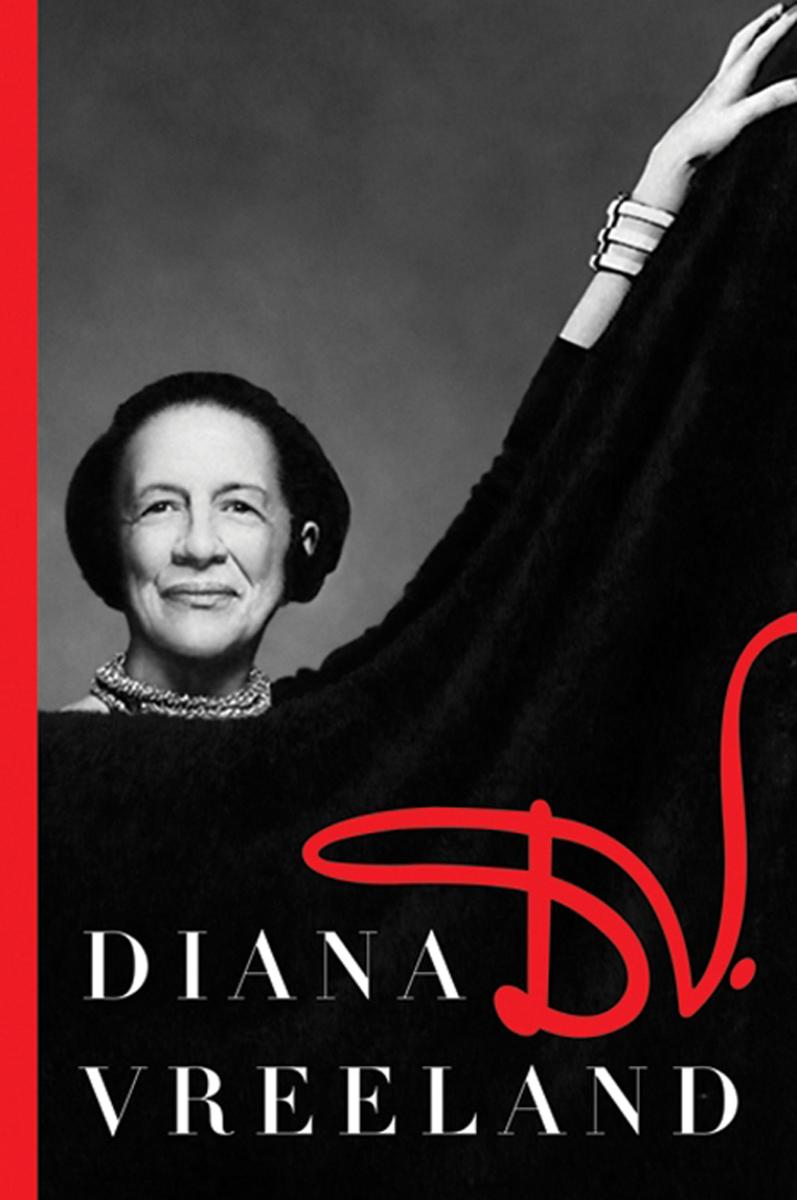
D.V.
¥94.10
Brilliant, funny, charming, imperious, Diana Vreeland the fashion editor of Harper's Bazaar and editor-in-chief of Vogue was a woman whose passion and genius for style helped define the world of high fashion for fifty years. Among her eclectic circle of friends were some of the most renowned and famous figures of the twentieth century artists and princes, movie stars and international legends, including Chanel, the Duke and Duchess of Windsor, Isak Dinesen, Clark Gable, and Swifty Lazar. Moving from English palaces to the nightclubs of 1930s Paris, the wilds of Wyoming to the exclusive venues of New York high society, D.V. takes readers into this iconic woman's dazzling life, evoking the luxury and brio of an era that encompassed Josephine Baker, England's Queen Mary, Buffalo Bill, and Diaghilev. Vibrant with the vivid, irresistible voice that elevated every tête-à-tête and dinner party, D.V. brings this renowned and uninhibited raconteur alive, whether recalling herself as a young girl, her search for the perfect red, her piquant observations about her world, or her abhorrence for nostalgia. Like her legacy, Vreeland's story, told in her own words, is a classic to be celebrated by both loyal admirers and a new generation of culture mavens and style savants.
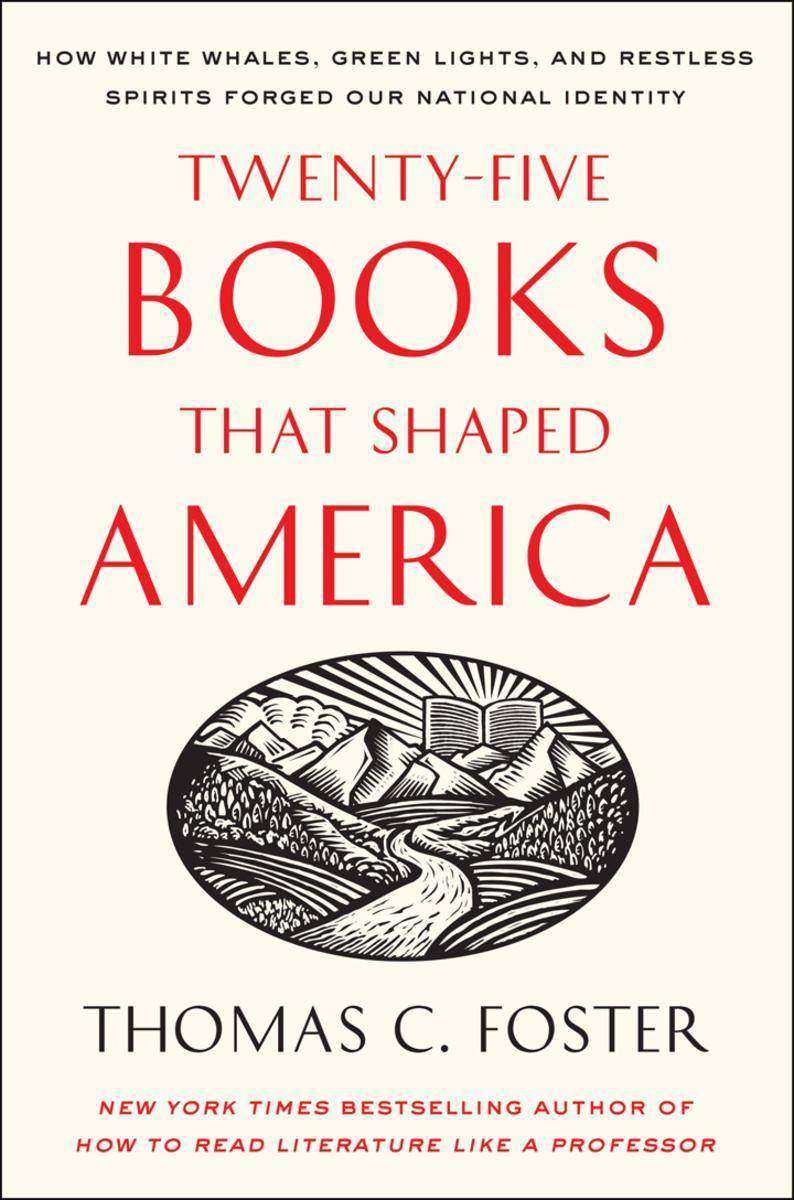
Twenty-five Books That Shaped America
¥83.92
From the author of the New York Times bestselling How to Read Literature Like a Professor comes a highly entertaining and informative new book on the twenty-five works of literature that have most shaped the American character. Foster applies his much-loved combination of wit, know-how, and analysis to explain how each work has shaped our very existence as readers, students, teachers, and Americans. Foster illuminates how books such as The Last of the Mohicans , Moby-Dick , My ?ntonia , The Great Gatsby , The Maltese Falcon , Their Eyes Were Watching God , On the Road , The Crying of Lot 49 , and others captured an American moment, how they influenced our perception of nationhood and citizenship, and what about them endures in the American character. Twenty-five Books That Shaped America is a fun and enriching guide to America through its literature.

Avon
¥55.31
Three young heirs, imprisoned by anunscrupulous uncle, escaped to the sea,to the streets, to faraway battle awaiting the day when they wouldreturn to reclaim their birthright . . . Lord Rafe Easton may be of noble blood, but survival taughthim to rely only on himself and to love no one. Yet when he setseyes on Miss Evelyn Chambers, an earl's illegitimate daughter,he is determined to have her, if only as his mistress . . . After her father's death, Evelyn Chambers never imaginedshe would be sold to the highest bidder, yet circumstancesgive her little choice but to accept the lord's indecent proposal. Rafe is wealthy, as well as ruthless. Yet his coldnessbelies deep passion and deeper secrets. If she must be his,Evelyn intends to lay bare everything the Lord of Pembrookis hiding. But dark discoveries threaten to destroythem both until unexpected love leadsthe last lost lord home . . .

Cruising Attitude
¥83.03
Flying the not-so-friendly skies... In her more than fifteen years as an airline flight attendant, Heather Poole has seen it all. She's witnessed all manner of bad behavior at 35,000 feet and knows what it takes for a traveler to become the most hated passenger onboard. She's slept in flight attendant crashpads in "Crew Gardens," Queens sharing small bedrooms crammed with bunk beds with a parade of attractive women who come and go at all hours, prompting suspicious neighbors to jump to the very worst conclusions. She's watched passengers and coworkers alike escorted off the planes by police. She can tell you why it's a bad idea to fall for a pilot but can be a very good one (in her case) to date a business-class passenger. Heather knows everything about flying in a post-9/11 world and she knows what goes on behind the scenes, things the passengers would never dream. Heather's true stories in Cruising Attitude are surprising, hilarious, sometimes outrageously incredible the very juiciest of "galley gossip" delightfully intermingled with the eye-opening, unforgettable chronicle of her fascinating life in the sky.

The 13th Gift: Part One (HarperTrue Life – A Short Read)
¥9.71
A true Christmas story of a family suffering their darkest moments finding strength and love from a surprise Christmas miracle. December 1999: It was the Christmas season, but Joanne Smith was numb. She wished she could just go to sleep and wake up on December 26. No singing. No laughter. No shopping. She typically enjoyed the holidays, but this year she couldn’t celebrate. Her beloved husband of almost twenty years had died two months previously. What had once been a happy home was now devastated, leaving her and her three children drowning in grief. Until they were thrown a lifeline. Twelve days before Christmas, Jo was in the midst of rushing her kids to school, when she discovered a poinsettia sitting on her doorstep with a card, signed cryptically by her “true friends.” That seemingly small gift was the turning point for the Smith family, as over the course of the twelve days of Christmas, a new gift arrived daily. The mystery of the Christmas presents – specifically, the generosity and kindness behind them – worked its magic on the Smiths as the family knitted back together. They rose out of their grief and latched onto the hope they suddenly felt again: that with love, with community, and with family, even the most broken hearts can be mended.

Our Vinnie - Part 3 of 3
¥18.93
Our Vinnie can either be read as a full-length eBook or in 3 serialised eBook-only parts. This is PART 3 of 3. You can read Part 3 one week ahead of the full-length eBook and paperback. The infamous Canterbury Estate in Bradford, a hotbed of crime, drink and drugs, was a law unto itself in the ’70s. So when one of their own was wronged in any way, the community always had its own way of dealing with it. The first title in a series of gritty family sagas, Our Vinnie accounts the dramatic true story of a brother’s determination to avenge his younger sister’s rape. Josie was just 11 when her Vinnie, then 14, was taken away to a detention centre. Distraught by his absence and left alone with indifferent parents, when she escapes from one of their rows she naively enters the house of a neighbour, Melvin, who – horrifically – leads her upstairs and overpowers her. Convinced by her friend Carol, Josie tells her sister Lyndsey about the rape but, with Vinnie out of the picture, Lyndsey uses the information for her own ends. When Vinnie returns, hardened by years inside the system, his outrage on discovering the truth is severe. And with new abuses continually coming to light, a cataclysmic series of violent events begins to spiral out of control… Dramatic and shocking, Our Vinnie is an unbelievable page-turner, documenting a community forsaken by society, and one brother’s unrelenting determination to take justice into his own hands.

My Mam Shirley - Part 3 of 3
¥18.93
My Mam Shirley can either be read as a full-length eBook or in 3 serialised eBook-only parts. This is PART 3 of 3. You can read Part 3 one week ahead of the full-length eBook and paperback.

City Kid: Part 2 of 3
¥28.45
City Kid can either be read as a full-length eBook or in 3 serialised eBook-only parts. This is PART 2 of 3. You can read Part 2 one week ahead of release of the full-length eBook and paperback. From the author of international bestsellers A Circle of Children and Lovey comes an inspiring true story of a gifted teacher’s determination to understand the ‘rotten’ city kid everyone has given up on. Sitting quiet and withdrawn at a battered school desk, Luke had the looks of a shy angel – and a past that special needs teacher Mary MacCracken could barely believe. Already Luke had been picked up 24 times by the police. He’d set over a dozen major fires, and had a staggering record of thefts. No adult could reach him, no teacher could control him, and no policeman could cow him. All this – and Luke was only seven and a half years old. Trying to help Luke was Mary MacCracken’s job – and a seemingly impossible challenge. This is the remarkable story of how the impossible came true.

City Kid: Part 3 of 3
¥47.48
City Kid can either be read as a full-length eBook or in 3 serialised eBook-only parts. This is PART 3 of 3. You can read Part 3 on release of the full-length eBook and paperback. From the author of international bestsellers A Circle of Children and Lovey comes an inspiring true story of a gifted teacher’s determination to understand the ‘rotten’ city kid everyone has given up on. Sitting quiet and withdrawn at a battered school desk, Luke had the looks of a shy angel – and a past that special needs teacher Mary MacCracken could barely believe. Already Luke had been picked up 24 times by the police. He’d set over a dozen major fires, and had a staggering record of thefts. No adult could reach him, no teacher could control him, and no policeman could cow him. All this – and Luke was only seven and a half years old. Trying to help Luke was Mary MacCracken’s job – and a seemingly impossible challenge. This is the remarkable story of how the impossible came true.

Betrayed: Part 2 of 3
¥28.45
Betrayed can either be read as a full-length eBook or in 3 serialised eBook-only parts. This is PART 2 of 3. You can read Part 2 one week ahead of release of the full-length eBook and paperback. In the much-anticipated follow-up to Sunday Times bestseller Trapped, foster carer Rosie Lewis tells the heartbreaking true story of 13-year-old Zadie. When the young teenage girl runs away and is discovered hiding on the city streets by the police, it is clear that all is not as it should be. Taught to believe that Westerners should not be trusted, when Zadie is initially delivered into the experienced hands of foster carer Rosie she is polite and well-behaved, but understandably suspicious of the family around her. Through Rosie’s support and understanding, gradually Zadie begins to settle into her new surroundings, but loyalty to her relatives, and fear of bringing shame on those around her, prevents her from confessing the horrifying truth about her troubled past. When the shocking truth finally emerges, Rosie and her family can hardly believe that Zadie had managed to keep the shocking secrets to herself for so long.

Sour: My Story
¥61.51
They call me Sour. The opposite of sweet. Shanking, stabbing, steaming, robbing, I did it all, rolling with the Man Dem. I did it because I was bad. I did it because I had heart. And the reason I reckon I got away with it for so long? Because I was a girl. SOUR is the true story of a former Brixton gang girl, drug dealer and full-time criminal. A member of the Younger 28s, a notorious gang that terrorised the postcodes around Brixton in the 90s, Sour escapes a troubled family life to immerse herself in the street life of likking and linking. She never leaves her house without a knife. At the age of fifteen, she stabs an innocent man in the street, earning her unrivalled respect and ‘Top-Dog’ status amongst her crew. She believes she is invincible. But the consequences of her actions are soon to catch up with her. Waking for the second time in two weeks in a hospital bed, to the news that she is pregnant, she realises it’s time to turn her life around. Motherhood will be a rude awakening, but it may also be her saving grace. Told with raw emotions and ferocious honesty, this is the real, on-the-record, story of one woman’s descent down the rabbit hole of gangland, and her efforts, as a daughter, mother and girlfriend, to claw herself out.
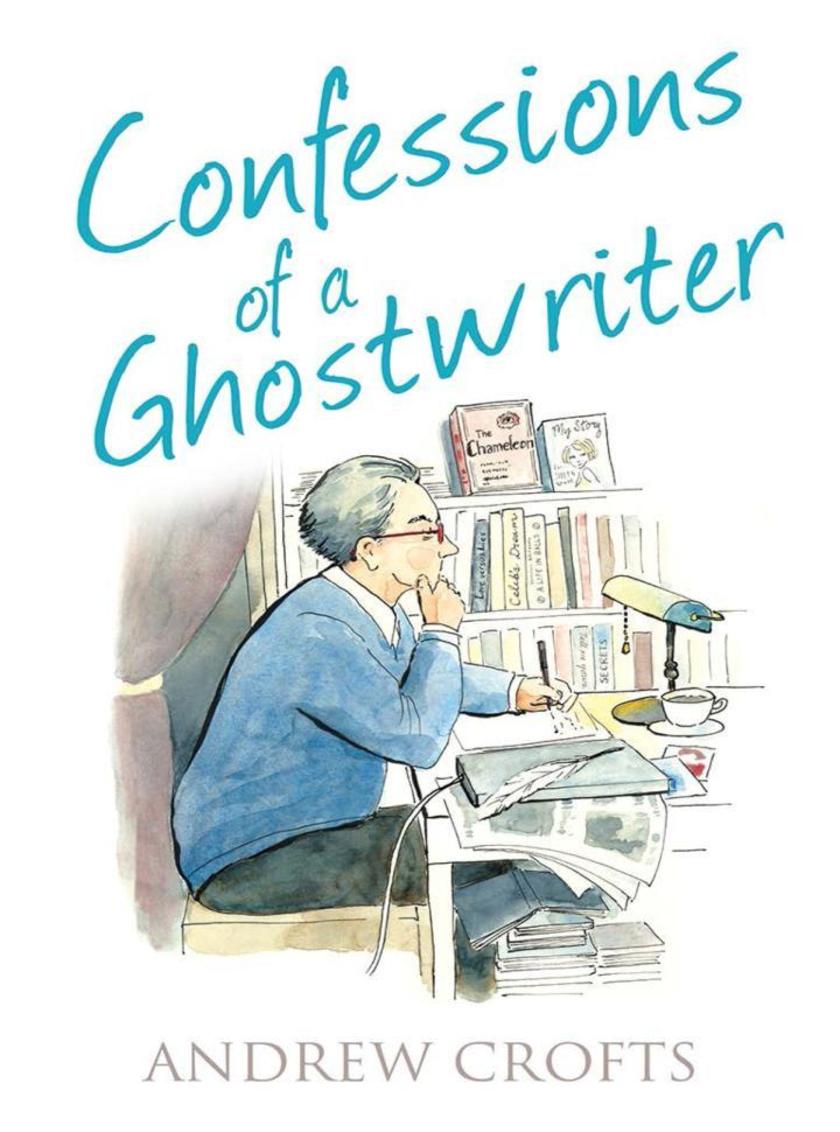
Confessions of a Ghostwriter (The Confessions Series)
¥34.14
HE’S WRITTEN MORE THAN 80 BOOKS. HE’S SOLD MILLIONS OF COPIES ACROSS THE WORLD. HE IS THE MAN BEHIND A DOZEN SUNDAY TIMES TOP 10 HITS, SPENDING OVER 120 WEEKS IN THE BESTSELLER CHARTS. BUT YOU PROBABLY HAVEN’T HEARD OF HIM. Andrew Crofts is a ghostwriter, an author for hire, employed to write other people’s stories – everyone from film stars to footballers, hitmen to hookers, world leaders to abused children. Ghostwriters are confidantes to the most famous people on earth, and they help give a voice to some of the most vulnerable and inspiring. They dip their toes into every corner of life, and inhabit worlds that are both shadowy and glamorous. They are the ones who write the books that top the bestseller charts. Andrew is one of the world’s most sought-after ghosts. In this book he confesses the truth about ghosting; how it feels to be an invisible author, to be given first class tickets to travel anywhere and permission to ask whatever questions you like. Confessions of a Ghostwriter gives an unrivalled peek into private worlds that few others gain admission to.




 购物车
购物车 个人中心
个人中心



